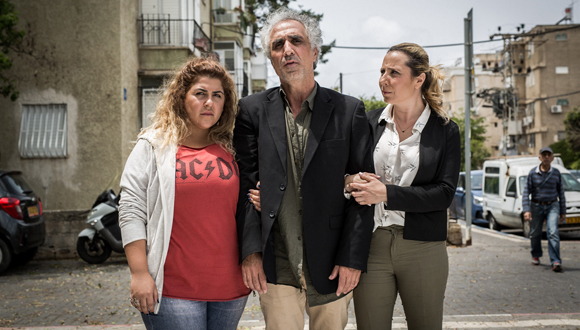
From VR to the migrant crisis at TAU’s international film festival
International students, filmmakers and glitterati attend to 21st edition of the TAU student film festival, held throughout the city of Tel Aviv
The Tel Aviv International Student Film Festival — one of the largest and most influential student film festivals in the world, according to CILECT, the International Association of Film and Television Schools — celebrated its 21st edition on June 16-22 at the Tel Aviv Cinematheque.
“This year we stressed the tension between traditional forms of filmmaking and the inventive storytelling of the digital age we are in,” says Mya Kaplan, co-director of this year’s festival with Talia Wigoder. “While most of the films screened were ‘traditional’ in the sense that an audience is watching artwork on a screen, many student filmmakers employed cutting-edge technology that afforded audience members the opportunity to truly experience the stories as they unfolded. This technology might be a 360-degree camera that twirls the spectator around or 3D animation, or virtual reality. We are a new generation of filmmakers who fall right in between traditional and future modes of storytelling.”
“We embarked on two new events at the festival this year that showcase how the digital age allows artists to tell their stories in new, bright and interesting ways,” Wigoder adds. “The International Digital Media Exhibition and Competition allows visitors to physically enter a film through virtual reality technology and artificial intelligence. Technology allows spectators to sit up from their seats and immerse themselves in the creative process. The Experimental Film Competition showcases films that question the position of contemporary art, of fundamental cultural concepts, without providing any answers.”
The only school where filmmakers own their work
The festival was founded in 1986 by students from Tel Aviv University’s Steve Tisch School of Film and Television and is now an annual event supported by the Tel Aviv-Yafo Municipality, the Israel Film Council and TAU. The Tisch School is the only film school in the world where student filmmakers own the rights to their student films. The School’s admission policy is equally unique. All qualified applicants — high school graduates with appropriate college entrance exam scores, etc. — are admitted to the first-year BFA program. Sixty-five students are invited to continue to the second year, after faculty and lecturers have had the opportunity to gauge the quality and artistic merit of their work.

Still from Adi Mishnayot’s film “Image of Victory”
TAU President Prof. Ariel Porat, Tel Aviv Mayor Ron Huldai, Head of the Tisch School Prof. Raz Yosef and others paid homage to festival participants and organizers in a video screened during the opening ceremony at Jaffa’s HaPisga Garden.
“The increasing global impact of the Tisch School is demonstrated not only by the wide pull of the Festival, but also by our outstanding showing on the international stage,” Prof. Porat says.
“Last year, Tisch students presented their films at 312 screenings in over 30 countries and received 68 awards from major venues such as Locarno and Jerusalem,” Prof. Porat adds. “This year the Tisch School launched an English-language International MFA Program in Documentary Cinema, a particular strength in Israel that we can now export and leverage for additional partnerships with top institutions abroad.”
Over 100 student films
Prize-winning films included Andreas Muggli’s Hamama and Caluna (The International Competition); Adi Mishnayot’s Image of Victory (The Israeli Competition); Lee Gilat’s Committed (The Short Independent Competition); Yair Bartal and Nofar Laor’s Not All Those Who Wander Are Lost (The Digital Media Competition); and Or Arieli’s Billboard (The Experimental Film & Video Competition).

Still from Lee Gilat’s film “Committed”
This year’s festival showcased more than 100 short films from 28 countries and drew more than 100 film students, filmmakers and directors from around the world for special screenings, master classes and cultural pop-up events across the city. The festival’s unique Film Bus, a traveling theater that brings the short films to all parts of the country, made its eighth nationwide circuit.
In addition, the festival, in cooperation with Israeli fashion house Renuar, emphasized the special connection between cinema and fashion. A variety of fashion-centric lectures by designers and international stylists and screenings of fashion films were held across the city. Master classes held by members of the Israel Screenwriting Guild and the Makor Hebrew Foundation on how to make films outside the film school framework were among the best-attended festival events.
Featured image: A still from Andreas Muggli’s winning film “Hamama and Caluna”
